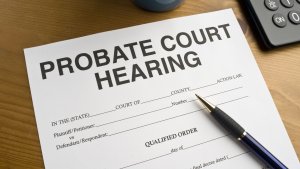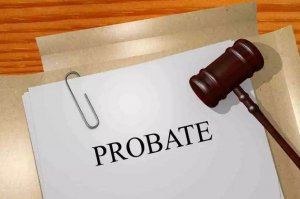Inheriting a property from a deceased loved one could be both good and bad at the same time, and there are reasons for that. Claiming an inherited property entails a lot of complicated processes that can be time-consuming and costly that in some instances, the entire process is more expensive than the overall value of the inherited property. The legal process of claiming the inherited property is called the probate process.
Claim Inherited Property Through Probate
EveryHomeBuyer.com explains further the probate process according to the applicable laws for you to legally acquire the inherited property from a deceased loved one. Read the article below to know more about what the probate process is all about.
The Probate Process & Dealing With Inherited Property
Heirs of a deceased individual are designated by law to inherit properties upon the person’s death whether it’s by law or by will. In instances like these, heirs often find themselves with the good fortune of becoming the owners of their first ever or an additional piece of real estate property that they can either sell, rent out or put into some other use. However, there are a couple of processes involved before an inherited property becomes the property of the heirs. This process, called probate, is a legal process of distributing properties according to the will of the deceased, or according to law.
Probate: What is it?
The entire probate process deals with the distribution of properties and assets by the court. If there is a will, the distribution is done according to the provisions in the will. If there is no will, the court decides how distribution is done. While there are certain types of inheritance that can avoid probate, such as beneficiary designations for 401ks and life insurance policies, trusts, and assets jointly owned, most real estate properties often must pass through probate.
Other types of properties that will be required to pass through probate include cash assets and cash accounts solely owned by the decedent, personal property such as jewelry, cars, valuable artwork, and assets that allow the naming of beneficiaries, such as insurance policies where none have been named.
The 4-Step Probate Process
File petition and give notice.
The first step is to file a petition in court to admit the will or appoint an administrator for the estate if there is no will. The court then issues a notice of hearing to all interested parties such as the decedent’s heirs, beneficiaries, creditors and any other party who has an interest in the decedent’s estate.
Inventory of estate properties
The court may appoint an appraiser to conduct an inventory and appraisal of all assets, including cash and cash accounts, bonds,stocks, business interests, personal and real estate properties.
The rule of thumb is that you need to undergo a legal process before successfully transfer the ownership of the property. With that, the distribution is done according to the provisions in the will. Apart from inherited properties, other types of inheritance that must pass through the probate process include cash assets owned by the deceased loved one as well as personal properties such as cars, jewelry, etc. The only way you can acquire all these properties legally is through probate.
However, as mentioned, this process can be costly and time-consuming that the overall cost of the process is almost equal (even more than) of the value of the property to be acquired. That’s why understanding the entire probate process especially its pros and cons for you to know if it is beneficial to you.
Julie Garber of The Balance explained in-depth and in a step by step procedures as to what exactly happens during the probate process. Read the article below to have a grasp as to what happens during the probate process.
What Happens During the Probate Process?
Probate is the court-supervised process of authenticating a last will and testament if the deceased made one. It includes locating and determining the value of the person’s assets, paying their final bills and taxes, and distributing the remainder of the estate to their rightful beneficiaries.
Authenticating the Last Will and Testament
Most states have laws in place that require anyone who is in possession of the deceased’s will to file it with the probate court as soon as is reasonably possible. An application or petition to open probate of the estate is usually done at the same time. Sometimes it’s necessary to file the death certificate as well, along with the will and the petition.
Completing and submitting the petition doesn’t have to be a daunting challenge. Many state courts provide forms for this.
The hearing gives all concerned an opportunity to object to the will being admitted for probate—maybe because it’s not drafted properly or because someone is in possession of a more recent will. Someone might also object to the appointment of the executor nominated in the will to handle the estate.
To determine if the submitted will is the real deal, the court relies on witnesses. Many wills include so-called “self-proving affidavits” in which the decedent and witnesses sign an affidavit at the same time the will is signed and witnessed. This is good enough for the court.
Lacking this, however, one or more of the will’s witnesses might be required to sign a sworn statement or testify in court that they watched the decedent sign the will and that the will in question is indeed the one they saw signed.
Appointing the Executor or a Personal Representative
The judge will appoint an executor as well, also sometimes called a personal representative or administrator. This individual will oversee the probate process and settle the estate. Read full article here…
Since the probate process is a legal process, it is supervised by a court that also acts as the entity that validates the authenticity of the last will of the deceased (if there’s any). It is also recommended that these documents must be submitted in court as soon as possible, and completing the task is not a daunting challenge. In cases when the deceased failed to secure a will, the probate process is still required to pay the decedent’s final bills and distribute their estate. The steps involved are generally very similar, regardless of whether a will exists—even though laws governing probate can vary by state.
The probate process has its pros and cons, and you as the client must carefully weigh before deciding on applying for the probate process, and Michelle Kaminsky, Esq. of Legal Zoom thoroughly explains the pros and cons of undergoing the probate process. Check out the article below to help you with your options.
Pros and Cons of Probate
In ideal circumstances, the probate process runs smoothly and quickly, but in the worst case scenario, it can turn into a drawn-out legal nightmare for loved ones. You may have heard that avoiding probate is always the way to go, but believe it or not, there may actually be some advantages to going through the probate process.
So what are the pros and cons of probate? Read on.
What is Probate?
Probate is the court-supervised process of distributing a deceased person’s assets after his death.
How Does Probate Work?
Whether or not a person has a last will and testament in place at the time of death, any assets that do not pass directly to beneficiaries must go through the probate process.
The process, in theory, is quite simple: In order to probate a will or estate without a will, the probate court assigns a representative, who will gather and list the deceased’s assets, pay any outstanding debts, bills, taxes, and fees, and then distribute assets to the intended beneficiaries according to probate law.
A probate attorney is often retained to help guide the representative (called an executor or administrator) through the probate process.
Probate Cons: Why Avoid Probate?
Even if you have a relatively simple estate, probate can eat up time and resources that not only delay your loved ones’ receipt of your assets but can also cause great stress in the months or even years it can take to settle an estate.
After a death in the family, the last thing anyone wants to do is sit through meetings with attorneys and court proceedings for months on end. And remember, all of this happens publicly as the probate process is a public proceeding.
Moreover, all of that legal wrangling costs money, which cuts into the value of probate property, even up to 10%—which means your loved ones won’t ever receive it.
Probate Pros: What’s So Bad About Probate Anyway?
The probate process actually works to protect small estates in some instances, especially for those who have died intestate, which means without a last will. In those situations, there is at least a predictable, step-by-step process in place to make sure that the correct beneficiaries inherit a decedent’s property, even if it may not be timely. Read more here…




